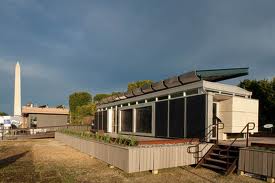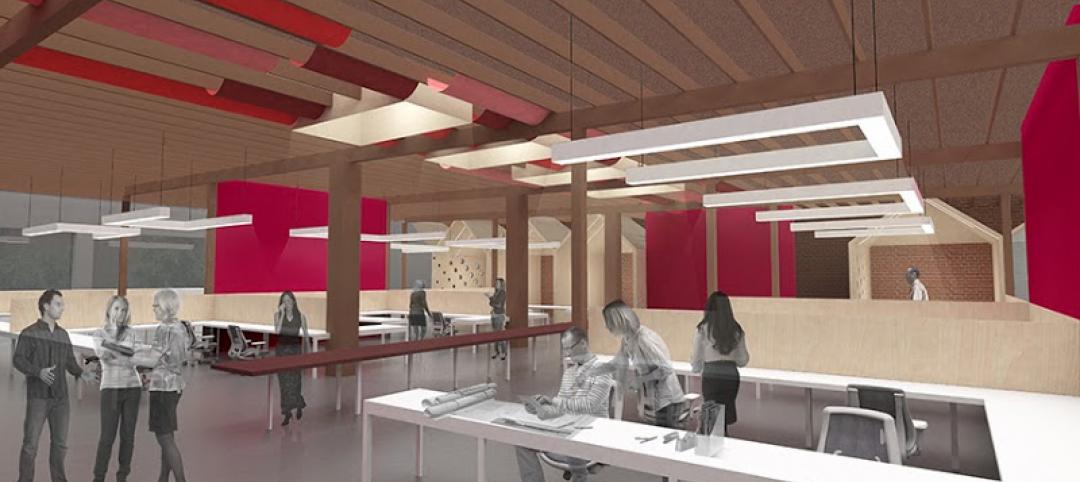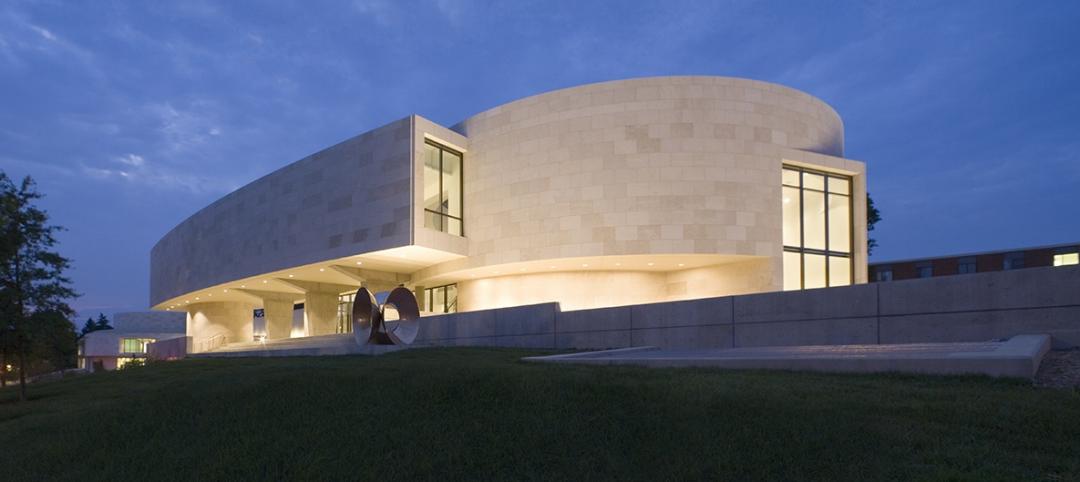Kohler Co. has partnered with several collegiate teams competing in the fifth Solar Decathlon, September 23 – October 2 at the National Mall’s West Potomac Park in Washington, D.C., by providing these teams with water-efficient Kohler and Sterling plumbing products.
College students from across the globe representing 20 universities have gathered to develop the most solar energy-efficient house in the competition sponsored by the U.S. Department of Energy.
The Solar Decathlon shows consumers how to save money and energy with affordable clean energy products that are available today. The Solar Decathlon also provides participating students with hands-on experience and unique training that prepares them to enter our nation's clean energy workforce.
“I am impressed with the students’ expertise on all aspects of green building – water efficiency, indoor air quality, materials, local sourcing and waste minimization – in addition to the energy efficiency focus of the contest,” said Rob Zimmerman, manager-engineering, sustainability and water conservation for Kohler.
Among the collegiate teams competing for the Solar Decathlon, which specified water-efficient plumbing products from Kohler is Purdue University, Zimmerman’s alma mater. “It’s encouraging that our young engineers, architects, and skilled trades are being educated this way, as they will be designing and constructing the homes, offices, and other buildings we’ll need in the coming years.”
The competing teams selected products designed to be water efficient and perform to expectations, including EPA WaterSense-listed toilets (Dual Flush and 1.28-gallon), showerheads and bathroom faucets, as well as commercial plumbing products including touchless faucets with the company’s award-winning Hybrid Energy System.
Kohler provided fixtures and faucets to Purdue and a handful of other teams such as Team Florida (University of Florida, South Florida, Central Florida and Florida State); Team Massachusetts (Massachusetts College of Art and Design, and the University of Massachusetts at Lowell); The Ohio State University; University of Illinois; Middlebury College; and Parsons The New School for Design and Stevens Institute of Technology. Kohler has been involved in the biennial Solar Decathlon since its inception in 2002.
The U.S. Department of Energy Solar Decathlon challenges collegiate teams to design, build, and operate solar-powered houses that are cost-effective, energy-efficient, and attractive. The winner of the competition is the team that best blends affordability, consumer appeal, and design excellence with optimal energy production and maximum efficiency.
The 2011 Solar Decathlon is open free to the public September 23 through October 2, (10 a.m. – 2 p.m. on weekdays, 10 am-5:30 pm on weekends). BD+C
Related Stories
| Oct 6, 2014
Design activity at architecture firms finally back to pre-recession levels: AIA report
Gross billings at architecture firms have increased by 20% since 2011, according to a new report by the AIA.
| Oct 6, 2014
Retelling an old story: Why women are underrepresented in architecture
Women account for more than half of the U.S. population. But even with significant gains over the past 25 years, their numbers and positions among the ranks of practicing architects appear to have stalled.
| Oct 3, 2014
New survey tracks Americans’ attitudes towards transit use
A record 10.7 billion rides were taken on public transit in the United States last year. And a national survey of Americans finds that the speed, reliability, and cost, more than any other factors, determine people’s willingness and frequency of use.
| Oct 2, 2014
Effective use of building enclosure mock-ups within the commissioning process
Engineers from SSR offer advice and guidelines on implementing building enclosure mockups on any project.
| Oct 2, 2014
Budget busters: Report details 24 of the world's most obscenely over-budget construction projects
Montreal's Olympic Stadium and the Sydney Opera House are among the landmark projects to bust their budgets, according to a new interactive graph by Podio.
| Oct 1, 2014
Long-time competitors NAC|Architecture and Osborn merge
The combined firm has offices in California, Colorado, and Washington, and offers a wide range of services, from landscape architecture and graphic design to architecture and interior design.
| Oct 1, 2014
Philip Johnson's iconic Crystal Cathedral to be modernized, made 'intrinsically Catholic'
Johnson Fain and Rios Clementi Hale Studios have been commissioned by the Roman Catholic Diocese of Orange to upgrade the all-glass church in Garden Grove, Calif. The church acquired the property in 2012.
| Oct 1, 2014
4 trends shaping the future of data centers
As a designer of mission critical facilities, I’ve learned that it’s really difficult to build data centers to keep pace with technology, yet that’s a reality we face along with our clients, writes Gensler's Jackson Metcalf.
| Oct 1, 2014
EYP, WHR Architects merge, strengthening presence in education, healthcare, energy sectors
The merger unites 530 professionals to better address some of the most critical issues facing our nation, namely education, healthcare, and energy.
| Sep 30, 2014
The Big Room concept: Using Building Team collocation to ensure project success
Implementing collocation via the Big Room concept will remove silos, ensure a cadence for daily communication, promote collaboration, and elevate your chances for success, write CBRE Healthcare's Stephen Powell and Magnus Nilsson.

















